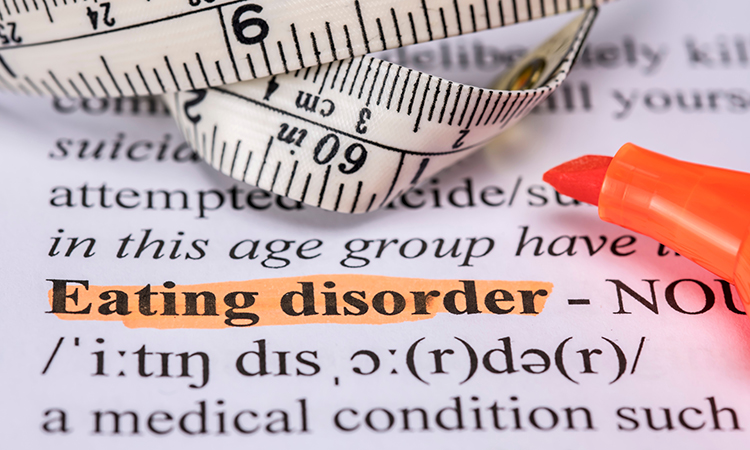Orthorexia: Why our relationship with food is so important
- Like
- Digg
- Del
- Tumblr
- VKontakte
- Buffer
- Love This
- Odnoklassniki
- Meneame
- Blogger
- Amazon
- Yahoo Mail
- Gmail
- AOL
- Newsvine
- HackerNews
- Evernote
- MySpace
- Mail.ru
- Viadeo
- Line
- Comments
- Yummly
- SMS
- Viber
- Telegram
- Subscribe
- Skype
- Facebook Messenger
- Kakao
- LiveJournal
- Yammer
- Edgar
- Fintel
- Mix
- Instapaper
- Copy Link
Posted: 15 April 2021 | Sophie Bertrand | 3 comments
Registered nutritionist, Sophie Bertrand, shines a light on a less well-known eating disorder – Orthorexia – and explains why the messaging around nutrition can be unhelpful at best, and damaging at worst.


Nutritionist Sophie Bertrand explains what can cause Orthorexia
Orthorexia is described as a type of eating disorder that is defined based on behaviours that are ‘unhealthy’ or ‘obsessive’ around food. Although it is not yet recognised by the Diagnostic Statistical Manual of Mental Disorders (DSM-5), health and nutrition professionals are becoming more aware of this disorder.
What often starts with the pursuit of ‘healthy’ eating, can turn into a very restrictive lifestyle that can result in damaging consequences. Individuals suffering often adopt a very ‘clean’ way of eating, or so they perceive it to be, which can result in nutrient deficiency, malnutrition and severe anxiety around food.
The concept of ‘clean eating’ puts emphasis on seeking foods that are ‘pure’ and unprocessed, but this can often be deceptive. For example, we see so many different plant milks available now – some marketing the fact they are made with only two or three ingredients. Other plant milks may be fortified, their labels featuring a list of confusing and unfamiliar words within the ingredients. Some individuals may perceive these as additives, however, they are likely just fancy words for the fortification of the drink with added B12 and calcium.
What causes Orthorexia?
Like other eating disorders, the cause of orthorexia is difficult to identify and many factors may come into play. There is some research that suggests personality traits, such as perfectionism, a need for control and obsessive compulsive disorder, may be risk factors as well as an association with other eating disorders.
Understandably, orthorexia can be difficult to diagnose as we see a rise in the pursuit of healthy eating. Where is the line between adopting a seemingly ‘super heathy’ diet and becoming obsessed with a certain way of eating?
There are a few things that can help identify whether or not someone may be suffering. These include an obsessive focus on eating ‘pure’ foods; thoughts and behaviours around food and eating that may dictate a large portion of a sufferers’ day. Orthorexia may cause anxiety around food, a lack of socialising due to uncertainty around meals that will be served, restrictive behaviours, malnutrition, nutrient deficiency and lifestyle disruption.
What may start as a pursuit to be more healthy can end up being extremely unhealthy. When an individual’s diet becomes more restrictive, they are at increased risk of adopting a diet that lacks variety, and as such, essential nutrients too. The body needs a balance of both macronutrients (carbohydrates, protein, fat) and micronutrients in order to thrive and maintain optimum health.
Mixed messaging
It is interesting and important to consider environmental factors, particularly marketing tools and social media platforms that we now all have such easy access to. You only have to log on to Instagram to see someone’s seemingly ‘perfect’ diet or body, which may cause people to compare and question themselves, thus pursuing behaviours that they believe will change them for the better or improve their health.
It is also confusing and unhelpful when food brands use buzz words like ‘guilt-free’ and ‘no nasties’ to promote their product as ‘healthier’ than another. It becomes even more persuasive when social media influencers and celebrity figures are endorsing them.
We must remember that brands are in constant competition with each other, and in the ‘healthy foodie’ world, everyone wants their product to be perceived as the healthiest. Over the years we have seen maple syrup deemed ‘better’ for us than sugar, however, maple syrup is still sugar. Additionally, superfoods were once being labelled the key to health, but there is no such thing as one miracle food.
In my opinion, some of the most unhelpful posts on social media, in regard to diet, come from influencers selling weight loss products. With such endorsements there is usually payment involved, so it becomes difficult to determine whether these influences have an invested interest in health or are just advertisers. We can start to base our beliefs on what we see on our timelines with little scientific evidence to back it up.


The messaging around nutrition can be unhelpful sometimes
When it comes to the nutrition world, all of these mixed messages make it very difficult for consumers to digest and separate fact from fiction. For example, a yoghurt marketed as low sugar may have replaced their sugar content with artificial sweeteners and additional ingredients that we cannot say are ultimately better for our health. We also see influencers sharing ‘healthier’ options which may be lower in calories, but again, not more nutritious.
All of this contributes to the confusion, which may lead to individuals having quite a restrictive diet due to their misunderstanding of certain messages around food. Although public health nutritionists are doing their utmost to promote helpful messaging in the industry via public health campaigns, it is safe to say that the average person may find it difficult to understand how best to practice a healthy and well-balanced diet. Restrictive diets are dangerous and can lead to a number of health concerns in the long run, as well as an unhealthy relationship with food.
The language used around food needs to be addressed and changed, to a degree. There is no single food or diet that will serve you better than a well-balanced eating approach towards food. Unfortunately, people don’t always buy into ‘balance’ and they want to believe in a ‘quick fix’. But, as mentioned, this does not bode well in regards to pursuing a healthy and sustainable way of eating.
Balance is key
Embarking on diets can lead to potentially destructive behaviours and attitudes towards food. The best advice I can give is to build a balanced plate at each meal and focus on adding as much variety to your diet as possible. It is also important to note that nutrition is very important, but so are other lifestyle factors. Hydration, stress, sleep, movement, mental health – these are all things that have the power to impact your health and overall wellbeing.
If you think you are struggling with Orthorexia or your relationship with food in some way, it’s really important to seek help. If disordered eating behaviours are left untreated they can have a devastating impact on one’s life. The first step is to speak to someone, whether that be a friend, family member, GP or registered dietitian. There are many different resources also available, and I recommend contacting BEAT if you are struggling.
About the author
Sophie Bertrand is a Registered Nutritionist (RNutr) with a BSc Psychology degree, an MSc in Clinical Nutrition, and is the Founder of Sophie’s Healthy Kitchen. She has also obtained a diploma in Nutritional Interventions for Eating Disorders accredited by the British Psychological Society (BPS) and an additional diploma in Intuitive Eating.
Sophie has worked with leading brands in the food industry and currently works with clients in a 1:1 setting at the Rhitrition clinic on Harley Street.
Sophie is co-host of the Forking Wellness podcast with Bari Stricoff and both are authors of Forking Wellness: Your No-Nonsense Guide to Health and Nutrition (Meyer & Meyer).










The concept of ‘clean eating’ puts emphasis on seeking foods that are ‘pure’ and unprocessed, but this can often be deceptive. For example, we see so many different plant milks available now – some marketing the fact they are made with only two or three ingredients. Other plant milks may be fortified, their labels featuring a list of confusing and unfamiliar words within the ingredients. Some individuals may perceive these as additives, however, they are likely just fancy words for the fortification of the drink with added B12 and calcium.
Registered nutritionist, Sophie Bertrand, shines a light on a less well-known eating disorder – Orthorexia – and explains why the messaging around nutrition can be unhelpful at best, and damaging at worst.
That’s such a nice way to look at it. Truly balance is the key. Looking forward to reading more from you.